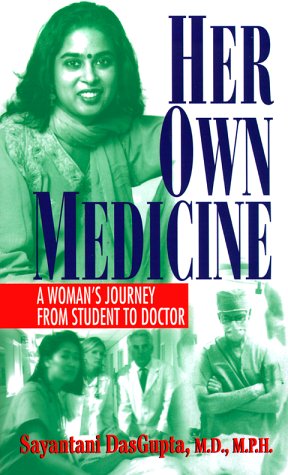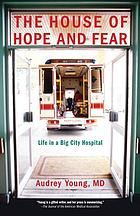Tagged with doctors
Her Own Medicine: A Woman's Journey from Student to Doctor
book type:
recommendation:
The Change Before the Change: Everything You Need to Know to Stay Healthy in the Decade Before Menopause
book type:
recommendation:
Being Mortal: Medicine and What Matters in the End
book type:
recommendation:
Black Man in a White Coat: a Doctor's Reflections on Race and Medicine
I came to appreciate how the medical system itself is sometimes just as sick as its patients.
author gender:
book type:
medium:
recommendation:
author demographic:
Tiger's Wife, the
author gender:
book type:
medium:
Sacred Hearts
This meticulously researched book was perhaps too meticulously researched. It felt like Sarah Dunant needed to include every salacious tidbit she gleaned about 16th century Italian nuns. That's not to say it's a bad book. I liked it okay; I just thought it tried to tell too many stories and was about 100 pages too long. First there's the noble woman sent off to the nunnery against her will story (happened all the time at the time), then the anorexic nun story, both with subplots about the strict yet fanciful novice mistress, the political abbess, and the dispensary nun who herself had been resistant to her "calling."
author gender:
book type:
medium:
Small Kingdoms
You know how I'm always complaining about stories told in multiple voices? (They should come with a warning on the cover!) Well this is another one. Maybe because they take turns so frequently in this book that you don't get attached, it isn't as much of a problem as usual. Still, maybe because I didn't get attached to any of the characters, it feels the whole time like you're waiting for the book to happen. The connecting stories are compelling enough, but what's really interesting is the look at life in Kuwait. I don't know much about the country, other than remembering learning how rich it is. In elementary school we didn't talk about how you can't be rich without having poor people take care of you. In Kuwait, all Kuwaitis (not including Kuwait-born Palestinians) are pretty well off, which means they have to import their servants and even many of their professionals. Most of the characters in the book are American, Filipino, Indian, or Palestinian, rather than Kuwaiti. It takes a lot of non-rich people to take care of the rich people, I guess.
author gender:
book type:
medium:
House of Hope and Fear: Life in a Big City Hospital, the
I secretly wish I was a doctor and not so secretly distrust and resent the medical profession, not to mention the health care industry. The House of Hope and Fear touches on the latter, more than the former. The author/doctor exhibits some annoyance with patients (and their families) that want to participate in developing their own treatment plans. The stories detail the cases of various emergency department patients, but the book is more about the Harborview hospital itself. Even so I didn't feel like I ever comprehended Harborview's unique funding model. It gets some public funds, but doesn't rely on them? But part of its mission is to serve the uninsured. The real problem with this book, which I neither loved nor hated, btw, is that it feels like it was written for someone's approval. Probably a few someones, since the book isn't as coherent as it could be.
Heart-and-lung transplantation was sometimes offered as life-sustaining therapy for those with end-stage pulmonary hypertension, but the selection of "appropriate" candidates for a limited number of organs could resemble the application process at elite colleges.





